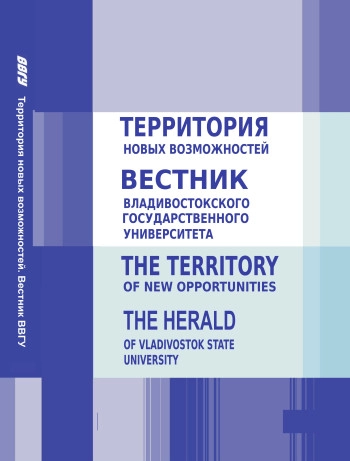employee
Barkaul, Russian Federation
The study examines foreign legislation in the field of historical policy. The relevance of the research topic is driven by the increasing role of laws that establish official positions on historicalevents. Such laws are increasingly being used as tools of political struggle, both within states and in international conflicts. The research subject is the legal norms of foreign countries regulat-ing historical policy. The study aims to provide a comprehensive analysis of laws and other regulatory acts in this field and to develop a classification system. The research employs systematic analysis, dialectical and logical methods, formal-legal (dogmatic) methodology, as well as comparative-legal and his-torical methods. As a result, the author systematizes approaches to legal regulation in the field of historical policy and proposes a classification framework. Despite the existence of a body of research on this topic, most studies remain theoretical in nature. Scholars primarily explore the concept of "historical policy" and analyze various approaches to it, while other researchers focus only on specific types of memory laws. The novelty of this study lies in its comprehen-sive analysis of the entire body of foreign laws aimed at codifying attitudes to-ward historical events. The findings may be useful in the development of Rus-sian legislation regulating historical policy and in formulating measures to counter the falsification of history by foreign states. The study also identifies shortcomings in existing foreign legal norms related to historical policy.
historical policy, memorial law, memory politics.
1. Miller A. Russia: Power and History. ProEtContra: Journal of Russian Domestic and Foreign Policy. 2009; (13): 6–23.
2. Constitution of the Republic of Armenia of July 5, 1995. President of the Republic of Armenia: [website]. URL: https://www.president.am/ru/constitution-2015
3. Constitution of the Italian Republic of December 22, 1947. Italian Government Presidency of the Council of Ministers: [website]. URL: https://www.governo.it/en/fundamentalprinciples/11825
4. Constitution of the Republic of Azerbaijan of November 12, 1995. Official website of the President of the Republic of Azerbaijan: [website]. URL: https://president.az/ru/pages/view/azerbaijan/constitution
5. Constitution of the Republic of Belarus 1994. National legal Internet portal of the Republic of Belarus: [website]. URL: https://pravo.by/pravovaya-informatsiya/normativnyedokumenty/konstitutsiya-respubliki-belarus/
6. Constitution of the Republic of India of November 26, 1949. Ministry of law and justice, government of india: [website]. URL: https://legislative.gov.in/
7. Constitution of the Federal Republic of Brazil of 1988. GovBr: [website]. URL: https://www.gov.br/cade/en/content-hubs/legislation/brazilian-constitution
8. Constitution of the Bolivarian Republic of Venezuela of 1999. Constitution: [website]. URL: https://www.constituteproject.org/constitution/Venezuela_2009
9. Constitution of the Socialist Republic of Vietnam of April 15, 1992. Consitute: [website]. URL: https://www.constituteproject.org/constitution/Socialist_Republic_of_Vietnam_2013
10. Constitution of the Republic of Poland of April 2, 1997. Sejm Rzeczypospolitej Polskiej: [website]. URL: http://www.sejm.gov.pl/prawo/konst/rosyjski/kon1.htm
11. Constitution of the Slovak Republic of September 1, 1992. Sudna Rada Slovenskej Republiky: [website]. URL: https://www.sudnarada.gov.sk/data/files/527_constitution-of-theslovak-republic.pdf
12. Basic Law for the Federal Republic of Germany of 1949. Deutscher Bundestag: [website]. URL: https://www.bundestag.de/parlament/aufgaben/rechtsgrundlagen/grundgesetz
13. Constitution of the Republic of Albania of October 21, 1998. Consitute: [website]. URL: https://www.constituteproject.org/constitution/Albania_2012
14. Litvinova O.G., Romanova L.S. Foreign experience in preserving historical and cultural heritage. Bulletin of Tomsk State University of Architecture and Civil Engineering. 2009; (1): 74–93. EDN: https://elibrary.ru/KXDSDR
15. Ley 52/2007, of 26 December. Queen’s University Belfast: [website]. URL: https://reparations.qub.ac.uk/assets/uploads/Ley-52-2007-Spain-EN.pdf
16. Ley 12/2015, de 24 de junio, en materia de concesión de la nacionalidad española a los sefardíes originarios de España. Agencia Estatal Boletin Oficial del Estado: [website]. URL: https://www.boe.es/buscar/act.php?id=BOE-A-2015-7045
17. German Criminal Code (Strafgesetzbuch – StGB). Federal office of Justice. URL: https://www.gesetze-im-internet.de/englisch_stgb/index.html
18. Gerstenfeld M. Abuse of Holocaust memory. Jerusalem: Ahva – Coop: Printing Press Ltd; 2009.
19. Agostino "Massacres in Armenia and the price of memory: it is impossible to forget, it is forbidden to remember: a hundred years later: open questions and preliminary answers in international law". New York: Springer International Publishing; 2018. 239 p.
20. Ruling of the European Court of Human Rights of 8 July 2008, "Vainai v. Hungary" (Complaint No. 33629/06) (Section II).
21. Atatürk Aleyhine Işlenen Suçlar Hakkinda Kanun. Memory Laws in European and Comparative Perspective. URL: https://melaproject.org/sites/default/files/2019-06/Ataturk%20Aleyhine%20Islenen%20Suclar%20Hakkinda%20Kanun.pdf
22. Charter Project for Peace and National Reconciliation. PA-X, Peace Agreement Access Tool. URL: https://www.peaceagreements.org/viewmasterdocument/1595
23. Decree of the President of the Republic of Belarus March 26, 1998 No. 157 "On public holidays, holidays and memorable dates in the Republic of Belarus". National Legal Internet Portal of the Republic of Belarus. URL: https://pravo.by/-document/?guid=3871&p0=P39800157





